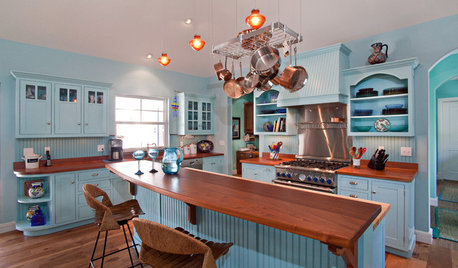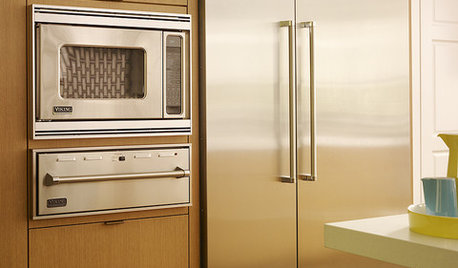importing major appliances to Canada
carolml
12 years ago
Related Stories

HOUZZ TOURSHouzz Tour: Everything Art Is Illuminated in Canada
Artist Richard Roblin has designed an airy, modern home and studio that's brimming with paintings and contemporary furnishings
Full Story
5 London Homes That Score Major Design Points
With an undulating wall, a backsplash the color of a child's eyes and more, these spaces rate high in creative, evocative design
Full Story
BEFORE AND AFTERSInside Houzz: Ideabooks Propel a Major Chicago Remodel
Communicating redesign wishes was easy for a homeowner with Houzz’s tools at her fingertips
Full Story
HOUZZ TOURSHouzz Tour: A Portland Bungalow Gets a Major Lift
Raising a whole house allowed 5 extra bedrooms and a walk-out basement — plus a boost in income
Full Story
MORE ROOMS2012 Trends: New Appliances for Every Living Space
There's a new convenience for every room in — and out — of the house
Full Story
BATHROOM DESIGN2012 Appliance Trends: Bathrooms
Bathroom renovations to include more towel-warming drawers, TVs, tablets, pre-set showers and more
Full Story
KITCHEN DESIGNWhite Appliances Find the Limelight
White is becoming a clear star across a broad range of kitchen styles and with all manner of appliances
Full Story
KITCHEN DESIGNDetermine the Right Appliance Layout for Your Kitchen
Kitchen work triangle got you running around in circles? Boiling over about where to put the range? This guide is for you
Full Story
KITCHEN DESIGNHere's Help for Your Next Appliance Shopping Trip
It may be time to think about your appliances in a new way. These guides can help you set up your kitchen for how you like to cook
Full Story
KITCHEN DESIGNA Cook’s 6 Tips for Buying Kitchen Appliances
An avid home chef answers tricky questions about choosing the right oven, stovetop, vent hood and more
Full Story






canuckm0m
carolmlOriginal Author
Related Professionals
Highland Kitchen & Bathroom Designers · Southbridge Kitchen & Bathroom Designers · Springfield Kitchen & Bathroom Designers · United States Kitchen & Bathroom Designers · Verona Kitchen & Bathroom Designers · South Barrington Kitchen & Bathroom Designers · Biloxi Kitchen & Bathroom Remodelers · Chandler Kitchen & Bathroom Remodelers · Cocoa Beach Kitchen & Bathroom Remodelers · Key Biscayne Kitchen & Bathroom Remodelers · Saint Helens Kitchen & Bathroom Remodelers · Waukegan Kitchen & Bathroom Remodelers · West Palm Beach Kitchen & Bathroom Remodelers · South Riding Cabinets & Cabinetry · University Park Cabinets & Cabinetrydavidro1
weedmeister
tomcarter101
carolmlOriginal Author
carolmlOriginal Author
carolmlOriginal Author
tomcarter101
ontariomom
carolmlOriginal Author
weedmeister
carolmlOriginal Author
aliris19
carolmlOriginal Author
plllog
weissman
carolmlOriginal Author
aliris19
cooksnsews
aliris19
plllog
carolmlOriginal Author
aliris19